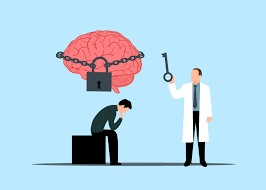Taking care of your mental health is just as significant as maintaining physical health. By forming habits that promote your mental well-being, you establish a solid foundation for resilience, particularly during challenging times. Here are five practical strategies to enhance your mental health:
1. Exercise and Diet
Physical activity and a balanced diet play a significant role in enhancing mental well-being. Engaging in regular exercise stimulates the release of endorphins, which are known for improving mood and reducing stress. Whether it’s a brisk walk, yoga, or a gym session, incorporating physical activities into your routine positively impacts mental health.
Alongside exercise, maintaining a nutritious and balanced diet supports brain function. Foods rich in omega-3 fatty acids, antioxidants, and whole grains contribute to better mood regulation and cognitive performance. Avoiding excessive sugar and processed foods may reduce energy fluctuations and stress levels.
2. Set Continual Goals
Purpose and direction are invaluable for mental well-being. By setting achievable goals, you give yourself a sense of accomplishment and motivation to continue progressing. Start by identifying short-term and long-term aspirations that align with your values and passions. Breaking these down into smaller, manageable steps allows you to track your growth.
3. Practice Daily Mindfulness
Mindfulness involves living in the present moment and being aware of your thoughts, feelings, and surroundings without judgment. It significantly reduces stress by helping you steer clear of overthinking and worrying about uncertainties. Incorporate mindful practices, such as deep breathing, meditation, or a quiet moment of gratitude, into your daily life.
For beginners, starting with small exercises like paying close attention to textures and tastes during meals may ease the practice into a daily routine. Tools such as guided meditation apps or online videos make mindfulness increasingly accessible. Regularly practicing mindfulness not only reduces anxiety but also improves your ability to process emotions and respond with clarity.
4. Explore Medication Options
Sometimes, mental health conditions affect your brain chemistry in ways that lifestyle changes alone may not address. Medications prescribed by qualified professionals serve as valuable tools for those who need them. Antidepressants or anti-anxiety medications adjust specific neurotransmitter levels, potentially relieving symptoms and promoting balance.
If medication sounds like an option, it is helpful to consult with licensed mental health or medical professionals who can tailor recommendations to your situation. Always adhere to the prescribed doses and openly discuss any side effects during follow-up appointments. Medications are one part of mental health care that typically complements therapy or other strategies to achieve stability and growth.
5. Try Therapy Approaches
Therapy provides a structured approach to exploring complex emotions and cultivating healthier thought patterns. Cognitive Behavioral Therapy (CBT), one standard approach, helps reframe negative thinking and build positive coping mechanisms. Through CBT, individuals may gain tools for recognizing and challenging distorted thought patterns that fuel cycles of anxiety or depression.
Other therapeutic approaches, such as dialectical behavior therapy (DBT) or arts-based therapies, offer alternative routes. Finding the right fit might require some trial and exploration. Working with certified therapists provides guidance for navigating life experiences while focusing on tailored solutions for individual challenges.
Find Help To Support Mental Health
Enhancing mental health doesn’t require drastic changes all at once; small, consistent steps lead to meaningful improvements. Whether it’s moving your body daily, savoring quiet moments, or seeking professional support, prioritizing mental well-being fosters resilience and joy over time. Schedule an appointment with a professional to help guide you.
